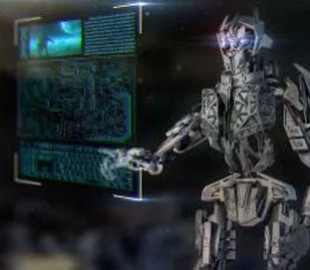AI has created a “wild” sound that has never been heard before


Developers listened to millions of audio clips to train the Fugatto model.
Researchers have developed artificial intelligence that they claim has created sounds never heard before.
This is reported by The Independent.
The AI model, called Fugatto, was developed by a team at computer chip maker Nvidia and aimed to create a “Swiss Army knife for audio.” Fugatto is used to edit or generate audio using text prompts.
Some of the text prompts, for example, remove certain instruments from songs or change someone's accent. Nvidia's Richard Kerris said Fugatto is more agile than other AI models and could revolutionize music by creating new sounds.
He commented, “Fugatto can make a trumpet bark or a saxophone meow. Anything a user can describe, the model can create.”
In particular, Fugatto developed audio samples from the text prompt: “Deep, rumbling bass pulses paired with intermittent, high-pitched digital chirps, like the sound of a massive intelligent machine waking up.” In another example, AI transformed the sound of a train into a string orchestra.
Ido Zmishlani, a producer involved in the Nvidia Inception program, added: “This thing is wild. Sound – it's my inspiration. It's what drives me to make music. The idea that I can create completely new sounds on the fly in the studio – it's incredible.”
Fugatto took developers more than a year to create, and millions of audio samples were used to train it. While AI has demonstrated its ability to create incredible sounds and videos with minimal effort, there are concerns about how the technology could impact creators and their work.
Recent Posts
Closer to Trump: Mark Zuckerberg bought a house for $ 23 million in Washington
< IMG SRC = "/Uploads/Blogs/B4/EA/IB-FRG6NKESN_9316240D.jpg" Alt = "closer to Trump: Mark Zuckerberg bought a house…
A resident of Mirnograd spread fake news from pro -Russian communities: she was reported suspicion
< img src = "/uploads/blogs/1a/8b/IB-FRG2788888OV_B996C0B7.jpg" Alt = "Woman spread fake news from pro-Russian communities: she…
Andrzej Duda's brother -in -law assessed his presidency. Such a review is unlikely to please the president
Jakub Kornhauser assessed the presidency of his brother -in -law - Andrzej Duda. < img…
New information on Beata Klimek. The detective does not beat around the bush
It passes over five months from the day on which Beata Klimek from advisory disappeared…
Pension may be higher by up to PLN 500. This is how you can raise your benefit from ZUS
How to raise the amount of your pension ? < img src = "https://zycie.news/crrops/0dbc2d/620x0/1/0/2025/04/03/88e06w823jvarg49JFQ0y2fnpwbfrxrp1bjdescx.jpg" alt…
Greece will order instead of American Patriot and Himars Israeli Barak and Puls
< img src = "/uploads/blogs/6e/90/ib-ib7h60ud_683f0c2e.jpg" Alt = "Greece will order instead of American Patriot and…